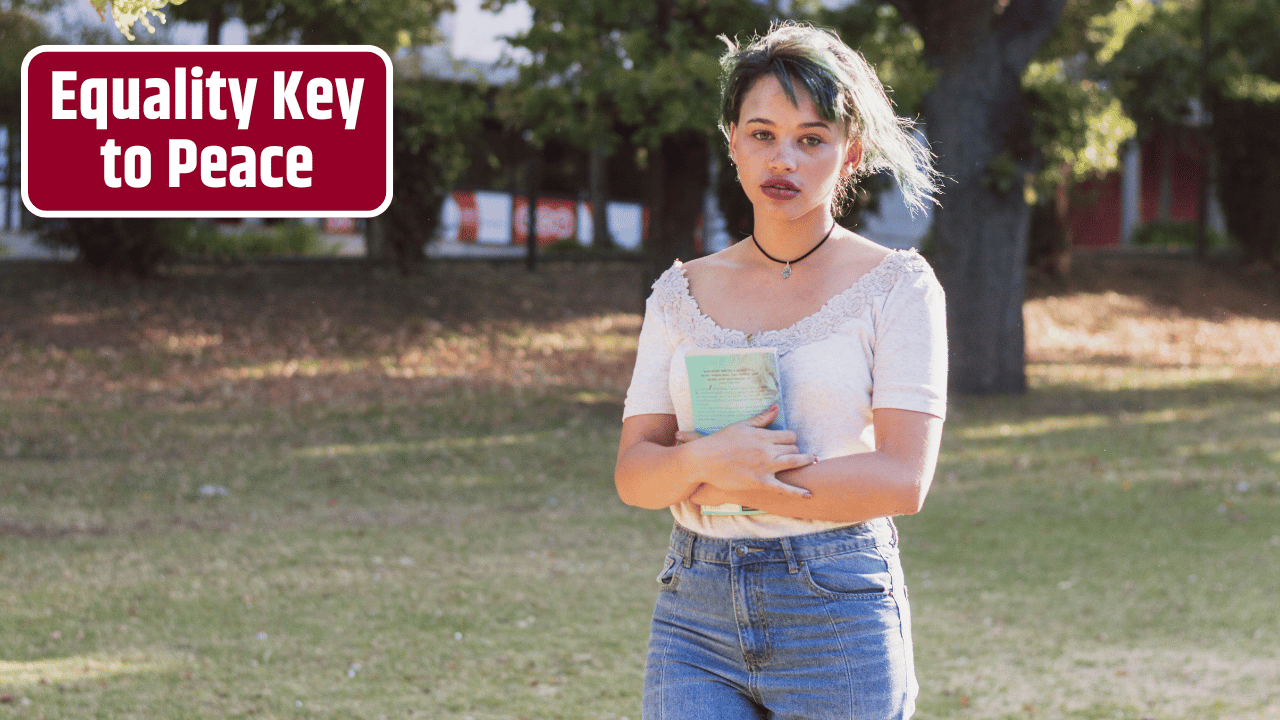Well, here’s another one: a recent global summit has officially declared gender equality as a cornerstone of peace and security. Sounds fantastic, right? But forgive my skepticism—I’m pretty sure we’ve heard similar sentiments before. So, why should we care this time?
Because this declaration goes beyond empty promises. This time, there’s actual momentum—real discussions about accountability, practical measures, and measurable commitments. Finally, gender equality is being recognized not just as morally essential, but practically indispensable to lasting peace and security worldwide. And honestly, it’s about time.
Table of Contents
Why Gender Equality Isn’t Just Nice—It’s Necessary
Look, peace isn’t merely the absence of war. Real peace means stability, fairness, opportunity, and dignity for everyone—regardless of gender. And let’s be clear: genuine peace cannot exist if half the population remains undervalued, unprotected, and underrepresented.
The research backs this up, loud and clear. Studies from institutions like the UN and the Council on Foreign Relations consistently show that societies embracing gender equality are significantly more stable, prosperous, and less prone to violent conflict.
In other words, gender equality isn’t a feel-good checkbox—it’s a strategic necessity.
Hard Facts, Cold Numbers, Real Truths
But maybe you’re thinking—”Okay, sounds logical. But give me proof.” Alright, let’s check out these statistics:
| Gender Equality Indicator | Countries scoring high | Countries scoring low |
|---|---|---|
| Conflict rates | Low | High |
| Economic stability | Stronger | Weaker |
| Political stability | More stable | Less stable |
| Community health & wellbeing | Significantly better | Poorer |
No surprises there, huh? Countries that prioritize women’s rights and gender equality consistently demonstrate better social cohesion, stronger economies, and reduced conflicts.
From Talk to Action: Summit Commitments Explained
So, what’s new this time around?
Well, the summit wasn’t just a ceremonial talk-fest. Leaders set tangible, actionable commitments, like:
- Concrete funding targets: Specific percentages of humanitarian and development aid allocated directly to gender equality programs.
- Women’s participation in peace talks: Mandatory quotas for women representatives in negotiations and peacebuilding initiatives.
- Stricter accountability: Regular evaluations and reporting mechanisms to ensure gender-equality pledges aren’t quietly shelved.
Honestly, if even half these commitments become reality, the impact could genuinely shift the needle on global security and prosperity.
Real Talk: Challenges Ahead
But let’s not pretend there aren’t enormous challenges still ahead. Cultural mindsets don’t shift overnight. Many leaders still treat gender equality as a secondary “soft” issue—not as a core strategic necessity.
Moreover, there’s resistance—overt and covert—from societies where patriarchal structures dominate. Tackling this requires courage, patience, and relentless advocacy.
Yet, for once, there seems to be genuine global consensus: without gender equality, peace and security remain elusive.
India’s Role: Time to Step Up?
Speaking frankly, India stands at a fascinating crossroads here. We have immense diplomatic clout, growing economic power, and ambitious international aspirations. Yet, our record on gender equality remains frustratingly mixed.
If India truly wants a significant global voice, this is a moment to shine. We must align our diplomatic advocacy with domestic commitments—championing gender equality consistently and loudly on every platform. Isn’t it time we put our money (and diplomatic muscle) where our mouth is?
Final Word: We’ve Heard the Talk—Now Let’s Walk It
Look, declarations like these can either inspire groundbreaking shifts or gather dust in forgotten archives. History will remember us not by our proclamations but by the actions we take after the speeches end.
The global summit’s declaration that gender equality is crucial for peace and security is an essential milestone—but it’s just the beginning. Let’s keep eyes wide open, pressure steady, and ensure leaders deliver more than empty words this time around.
Because real peace is more than an agreement on paper—it requires equality, dignity, and action every single day.
FAQs
Why is gender equality essential for peace and security?
Societies prioritizing gender equality experience fewer conflicts, stronger economies, and better political stability, making equality strategically vital to global peace.
What concrete measures were proposed at the summit?
The summit outlined specific funding allocations, mandatory representation of women in peace processes, and improved accountability mechanisms to ensure tangible progress.
Is gender equality achievable in conservative cultures?
Change is challenging but possible, requiring targeted education, community advocacy, inclusive policy-making, and continuous diplomatic support.
How can citizens ensure summit declarations lead to action?
Citizens should hold leaders accountable, demand transparency, support organizations working on gender equality, and stay actively involved in advocacy efforts.
Why does India need to lead on gender equality globally?
India’s global diplomatic ambition, economic clout, and cultural influence uniquely position it to set an example and significantly shape international gender-equality norms.














